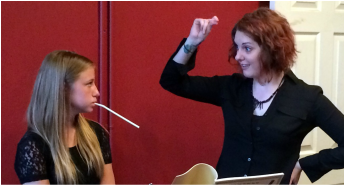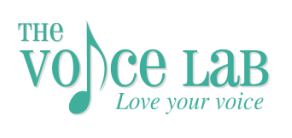
1. Tell me more
2. How does it feel?
3. What do you want it to sound like?
–Liz Jackson Hearns
There is a long-standing notion that singing teachers can work magic with the human voice. That there is a secret set of skills that enables some gifted people to “hear down the throat” of singers and produce beautiful, confident sound as if by sorcery. Here in the twenty-first century it may not be sorcery, but it is certainly a specialized and honed set of skills that enables your voice teacher to give you the tools for vocal success and present them in a language that you can absorb and utilize.
In every lesson that I teach, there are 3 questions that I ask multiple times throughout the lesson to guide both my student and me to achieving the best sound possible from a balanced and healthy vocal instrument.
- Tell me more. At some point in the lesson, my student starts to shake her head or make an unpleasant face, clearly aware that the sound emerging from her mouth is not ideal. “Tell me more” helps both of us identify what the student feels is going on. For example, she might be feeling that the sound is weak or airy in an ascending line. This little phrase helps her articulate what is wrong – from there, I interpret this information and put it through the bank of information (is it a laryngeal muscle problem? Breath imbalance? Something misaligned in the resonance tract?) and use that to move onto the next question.
- How does it feel? This question is, I feel, the most crucial for singers. You are inside your own resonating cavity and therefore don’t necessarily have an accurate perception of what your voice sounds like (ever listen to yourself on a recording?), so relying on how your voice feels will give more accurate and consistent insight. This same student might say that it feels like she is trying really hard to make a loud sound by using more breath, but that nothing is changing. Again, I’ll run this through the diagnostic process and come up with some possible causes and solutions for us.
- What do you want? This one is a little tricky, and not always applicable. For singers in an academic setting, your voice teacher has an idea of what your voice will sound like in the future and you may be in a situation where you should trust your teacher to guide you. In my studio, because most of my clients are adults out of school, we have the freedom to use this question as often as needed. In this sample lesson scenario the student might say she wants a clear tone or more power in her sound, and yet again I’ll put this through the database to come up with some ideas about how to address the issue–we’ll realign her breath and make sure she’s using good resonance and appropriate vocal muscle use. “What do you want?” also ensures that you are clear about your own voice goals and that you’re working toward them.
Communicating with your voice teacher about how your voice feels and what you’d like it to be able to do will help you achieve your goals faster. It isn’t magic, but your voice teacher experiences your voice along side you and gives insights and information to help you understand and take ownership of your instrument. I know you’ve heard me ask these questions in your lesson, and you can start asking them of yourself in practice as well. Describe for yourself in detail what you feel and what you want, and use the tools you’ve received in lessons to help you get there.



